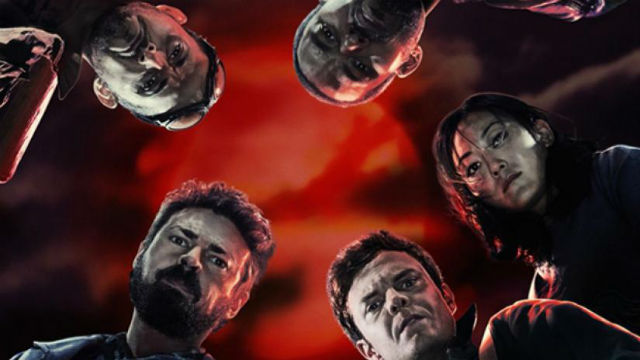In a world where superhero properties are permeating the pop culture landscape more than ever, The Boys is a superhero satire for the modern generation. Based on the comic of the same name by Garth Ennis and Darick Robertson, the series takes place in a world where superheroes exist. Not only that, but they are also are monetized and controlled by corporate entities trying to leverage governmental control secretly. It’s essentially a modernized version of Watchmen, without the evergreen aesthetic. Whereas Watchmen features timeless storytelling, The Boys represents timely storytelling. Because of this distinction, there’s something omnipresent about the way that The Boys mirrors our current socio-political climate.
One of the more intriguing things about the approach to The Boys is that it’s a character drama disguised as a superhero story. It’s realistic in the sense that this universe isn’t too far off from the way things might be if superheroes existed in real life. At the same time, it has enough stylization to feel like more of a satire than a parody. There’s a thin distinction between parody and irony – a fine line between mocking a genre and deconstructing it. Luckily, this series manages to fall into the latter category. While a concept like The Boys could have easily bordered on being too fantastical or too mundane, it strikes a perfect balance between these elements to create an intriguing take.
Kripke’s Cache
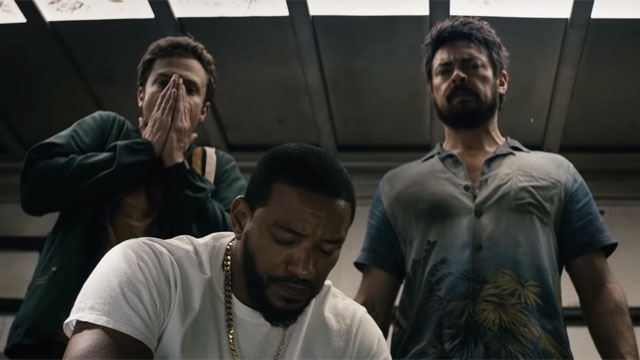
As a whole, showrunner Eric Kripke’s brutally realistic depiction of a world with superheroes in The Boys is engrossing. Even though specific details were changed from the source material, Kripke’s vision retains the essence of the story. While different directors with different sensibilities helm every episode, Kripke keeps a steadfast aesthetic that manages to feel brutally authentic. The series is stylized to a certain extent, but never enough to detract from the inherent drama of the situations. Despite being a fairly serious drama, The Boys is also darkly funny at times. The show presents a ruthless comedic sensibility that juxtaposes moments of ironic levity with near-gratuitous levels of violence. It’s a weird tonal balancing act that Kripke’s guiding hand manages to level perfectly.
Dan Trachtenberg, director of the pilot episode, makes the biggest impression of the first season. The 10 Cloverfield Lane and Black Mirror helmer yet again displays a penchant for creating memorable and compelling storytelling. Aside from establishing the visual aesthetic of the show, Trachtenberg manages to make an absurd level of exposition entertaining and even thought-provoking. The action is impressive, even though the beats are few and far between. And there are some downright beautiful shots in the debut episode. The filmmaking is solid throughout, but it’s ultimately how effortless the storytelling feels that makes it so effective.
A Surprising Ensemble
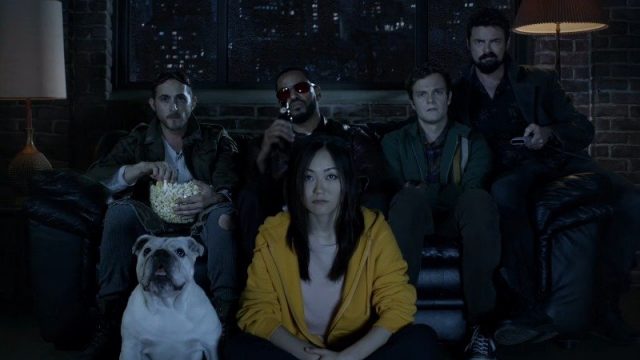
As perfect as the approach to The Boys is, the show’s surprising ensemble also makes a significant impact. Both Trachtenberg and Kripke are partially responsible for the excellent casting in the series. The co-leads of the show, Erin Moriarty and Jack Quaid, are spectacular. Whereas Moriarty offers a nuanced and layered performance, Quaid’s performance is so sincere that it’s easy to sympathize with Hughie’s plight. He’s perfect as the everyman in the story of the series, also proving that he’s a superstar in the making.
Similarly, Karl Urban is excellent as Billy Butcher, delivering a delightfully self-aware performance. As the villain of the series, Anthony Starr’s turn as Homelander is downright terrifying. Starr is also outstanding the entire season, instantly bringing a level of casual menace and terror to the all-American hero. Jessie Usher, who plays the equivalent of a cocky teenager, also turns in a reliable performance. In the same vein, Dominique McElligott, Laz Alonso, Tomer Kapon and Karen Fukuhara also make the best of their respective supporting roles. Even Elisabeth Shue’s mysterious character manages to make an impression with such limited screen time.
While Chace Crawford is perfectly cast as The Deep, the story mostly relegates the character to a plot device. Even though his arc is a necessary one in the first season, it also feels mostly perfunctory. It’s not an utterly hollow arc. It’s just that the show seems uncertain about what to do with the character at this point. Finally, Simon Pegg pulls off a pretty convincing American accent as Hughie’s father. With that said, however, he’s not in enough of the first season to make his inclusion memorable.
Re-Contextualizing the Übermensch
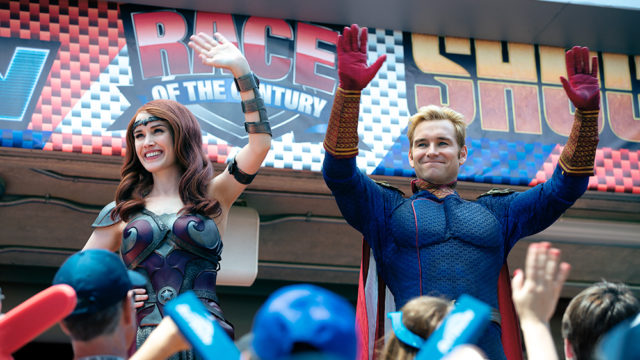
Although the excellent casting is spot-on for the most part, it’s the writing and thematic complexity of The Boys that makes the series worth checking out. The best thing is the way that it deviously subverts the conventions of the genre. It could have easily been too cheeky for its own sake. The first season focuses on demolishing character archetypes only to rebuild them, which leaves one wanting more from the season’s perfectly paced 8-episode arc. On a fundamental level, the setups and payoffs are well crafted. The plot is relatively straightforward, but it’s ultimately the thoughtful characterization that genuinely drives the momentum of the series.
The show fills itself with moral quandaries and dilemmas for all the characters – both good and bad. As a result, The Boys creates a layered amoral tapestry that allows the series to operate in shades of gray. No one is evil, or truly good, which ends up giving the show much more mileage than the premise probably deserves. Philosophically speaking, the series explicitly paints a scathing critique of the Übermensch mentality. The show isn’t bringing a new approach to this allegory by any means. However, it does happen to be a darker exploration of a Machiavellian boogeyman in a modern context. It’s an interesting enough twist for this exploration in the first season to feel fresh and different – at least for now.
Absolutely Diabolical
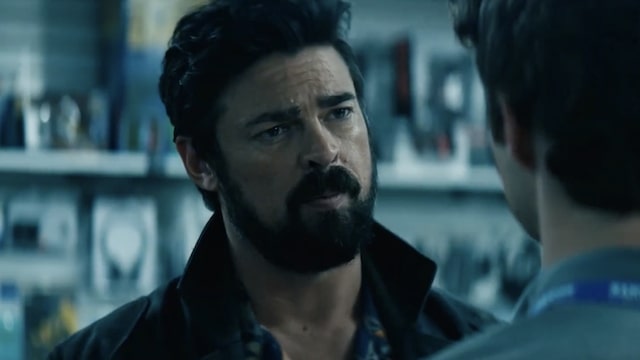
In terms of violence, The Boys is unyieldingly brutal. The series revels in showcasing death and destruction with no doubts about the message it could be sending. It’s not a slight, nor is it a tribute. It’s just that the show is more interested in being “absolutely diabolical” in its depiction of violence than actually having something thoughtful to say about it. And even though the effects in the pilot are well-polished, the rest of the series suffers from slightly rushed VFX work.
Despite a few nitpicks here and there and a few underserved characters, the first season of The Boys is an exciting start for the Amazon series. In many ways, The Boys is perhaps the most uniquely strange and effectively perverted superhero series this year. And in a year filled with oddities that attempt to deconstruct the genre like Doom Patrol, Umbrella Academy, and Brightburn, that’s saying something. The Boys features the most compelling storytelling of the bunch. It’s a well-crafted and surprising first season that is sure to keep fans clamoring for more after the season finale. It’s a show that spends the majority of its first season smashing the archetypes of these characters, only to set the stage for rebuilding them in the future. In these respects and more, it’s one of the most exciting series this year. Season two can’t come soon enough.
